Yvonne Salbrechter, BA MA
Stellvertretende Pflegedienstleitung im UKH Klagenfurt am Wörthersee, AUVA
Health is a high good, which you will become aware of especially if you do not possess it. This makes it all the more important to have experts who start with prevention and health promotion: The course of studies "Healthcare Management" trains future experts for exactly this purpose and enables them to take on management tasks in the health and social sector.
Entrepreneurial thinking and acting in the health and social sector are becoming increasingly important: The greying of our society, the call for evidence-based approaches, the demand to develop and implement high-quality services, cost pressure and digitization are major challenges. The "Healthcare Management" degree programs respond to these challenges with an interdisciplinary education that picks up on regional and international trends.
You want to gain international experience and broaden your horizon? This is possible within the scope of excursions abroad or with a semester abroad at established international partner universities. Students can also already work on research projects. In doing so, students come into contact with management in social and health care institutions, among others. The immersion in the fields of health economics and health management is also theoretically accompanied during the course of studies. Business administration in health care, project management and personnel management are formative topics in the training.
Further focal points of the study courses are in the health sciences - disease prevention, health promotion, disease treatment, nursing and rehabilitation are the main focus here. Research-based learning and project work help students to put theoretical knowledge into practice. This is deepened in the ten-week professional internship in the fifth semester. Accompanied by two seminars, the internship is characterized by an intensive supervision concept based on the experiences of students, internship providers and internship supervisors.
Students can choose between two specialisations: The major in "Health Management" focuses on the assumption of management tasks in health and social institutions, while the major in "Nursing Management" prepares students for management tasks in accordance with the Health and Nursing Act (Nursing Management § 65a). Whichever specialisation students choose - the enormous growth potential in the health sector promises good job prospects in both health and nursing management.
Winterterm 2025
Period I: 01.11.-15.03.2025
Period II: 16.03.-15.05.2025
Period III: 16.05.-15.07.2025
Period IV: 16.07.-30.09.2025*
For applicants from outside Europe applications are only accepted within Period I.
*We reserve the right not to open the period or to close it early!
The semester starts in October - we only offer intake in winterterm!
The start of lectures can be found in the individual timetable which is available after enrollment.
Tuesday to Friday full-time.
50% Online teaching, Study & Work possible.
Study Guidance
Book your personal appointment right now!
You can find out more about our advisory services, events and fairs on our website.
Language of Instruction: German
Minimum of B2, stated by either
-DAF ("Deutsch als Fremdsprache)
-ÖSD ("Österreichisches Sprachdiplom Deutsch)
-GOETHE Sprachinstitut
Admission requirements:
Please note that foreign educational documents in some cases need to be legalized as well as translated in order to apply. More information can be found in our official application guideline
In den Online-Infosessions stellt Ihnen die Programmleitung das Studium detailliert vor. Sie erhalten wertvolle Informationen zu Studieninhalt, Praktika, den Aufnahmevoraussetzungen und den vielfältigen Karrieremöglichkeiten.
FH-Prof. Mag. Dr. Klaus Wettl
Head of degree program Healthcare Management / Professor of Healthcare Management
Please contact us if you have any questions about your studies:
Brigitte Pintar, BA M.Ed.
Program Administration
FH-Prof. Mag. Dr. Klaus Wettl
Head of degree program Healthcare Management / Professor of Healthcare Management
With over 100 Study & Work partner companies and organizations, CUAS offers students the opportunity to combine studying and working!
The bachelor's program "Healthcare Management" enables students to pursue a career in the management levels of the health and social services sector. The innovative education addresses the major challenges of the health care sector and deals with topics such as early help, dementia or digitalisation. Due to the great growth potential in the health and care sector, graduates can expect a wide range of career prospects.
Thanks to the international orientation of the course, graduates can work both in Germany and abroad. Ideally prepared in the fields of quality management, health sociology, ethics in health care, legal bases in health care, communication and conflict management, students will have no difficulty in gaining professional experience even during their internship.
What students should bring to their studies:
After successful completion of their studies, graduates have the following skills and knowledge:
| Lecture | Type | SPPS | ECTS-Credits | Course number |
|---|---|---|---|---|
| Ausbildung zum*r Rettungsanitäter*in 1 | ILV | 12,0 | 5,0 | SX-FA1 |
| Ausbildung zum*r Skilehreranwärter*in | ILV | 0,0 | 0,0 | SX-FA3 |
| Lecture | Type | SPPS | ECTS-Credits | Course number |
|---|---|---|---|---|
| Ausbildung zum*r Rettungsanitäter*in 1 | ILV | 12,0 | 5,0 | SX-FA1 |
| Ausbildung zum*r Skilehreranwärter*in | ILV | 0,0 | 0,0 | SX-FA3 |
| Lecture | Type | SPPS | ECTS-Credits | Course number |
|---|---|---|---|---|
| Buchführung und Bilanzierung | ILV | 2,0 | 3,0 | B3.02850.10.040 |
| Das österreichische Gesundheitssystem | VO | 2,0 | 3,0 | B3.02850.10.120 |
| Digital Health | ILV | 2,0 | 3,0 | B3.02850.10.100 |
| English Basic | SE | 1,0 | 2,0 | B3.02850.10.131 |
| English Discussion Club 1 | ILV | 1,0 | 1,0 | B3.02850.10.111 |
| Entwicklung und Gesundheit über die Lebensspanne | ILV | 2,0 | 2,0 | B3.02850.10.070 |
| Gesunder Start ins Studium | SE | 2,0 | 2,0 | B3.02850.10.050 |
| Gesundheitsbetriebswirtschaftslehre | ILV | 3,0 | 4,0 | B3.02850.10.030 |
| Gesundheitsförderung und Prävention | ILV | 1,0 | 1,0 | B3.02850.10.060 |
| Interprofessionelle Zusammenarbeit | VO | 2,0 | 2,0 | B3.02850.10.090 |
| Klimawandel und Gesundheit I | ILV | 2,0 | 3,0 | B3.02850.10.020 |
| Projektmanagement | ILV | 2,0 | 4,0 | B3.02850.10.080 |
| Techniken wissenschaftlichen Arbeitens | ILV | 2,0 | 2,0 | B3.02850.10.010 |
| Lecture | Type | SPPS | ECTS-Credits | Course number |
|---|---|---|---|---|
| Berufsgruppen im Gesundheitswesen kennenlernen | ILV | 2,0 | 2,0 | B3.02850.20.100 |
| Digital Health for personalized Healthcare | ILV | 2,0 | 2,0 | B3.02850.20.020 |
| Einblicke in die Praxis der Gesundheitsförderung und Prävention | ILV | 2,0 | 2,0 | B3.02850.22.030 |
| Einführung in die Rechtswissenschaften | VO | 1,0 | 1,0 | B3.02850.21.120 |
| English Discussion Club 2 | ILV | 1,0 | 2,0 | B3.02850.20.111 |
| English: Presentation Skills | SE | 1,0 | 2,0 | B3.02850.20.141 |
| Gesundheitsökonomie | ILV | 2,0 | 3,0 | B3.02850.20.080 |
| Klimawandel und Gesundheit II | ILV | 3,0 | 3,0 | B3.02850.20.010 |
| Prozessmanagement | ILV | 2,0 | 4,0 | B3.02850.20.090 |
| Public Health | ILV | 2,0 | 3,0 | B3.02850.20.070 |
| Schreibwerkstatt | SE | 2,0 | 3,0 | B3.02850.20.060 |
| Settings der Gesundheitsförderung und Prävention | ILV | 2,0 | 2,0 | B3.02850.21.040 |
| Sozialrecht | VO | 1,0 | 1,0 | B3.02850.22.130 |
| Statistik 1 | ILV | 2,0 | 2,0 | B3.02850.20.050 |
The high demand for the assumption of management tasks in the health care sector makes special training in this area necessary. The Bachelor's degree course "Health and Nursing Management" at the Carinthia University of Applied Sciences offers you a unique combination of health business management and health and nursing science content. Thus, you will be optimally prepared for taking over management tasks in the healthcare sector.
The successful completion of the Bachelor's program in Health and Nursing Management entitles the holder to a Master's program in Health & Social Affairs and in Economics at the Carinthia University of Applied Sciences in the scope of 4 semesters as well as to a Master's programme in Health, Social Affairs and/or Economics at another FH or university according to § 6 FHStG (4).
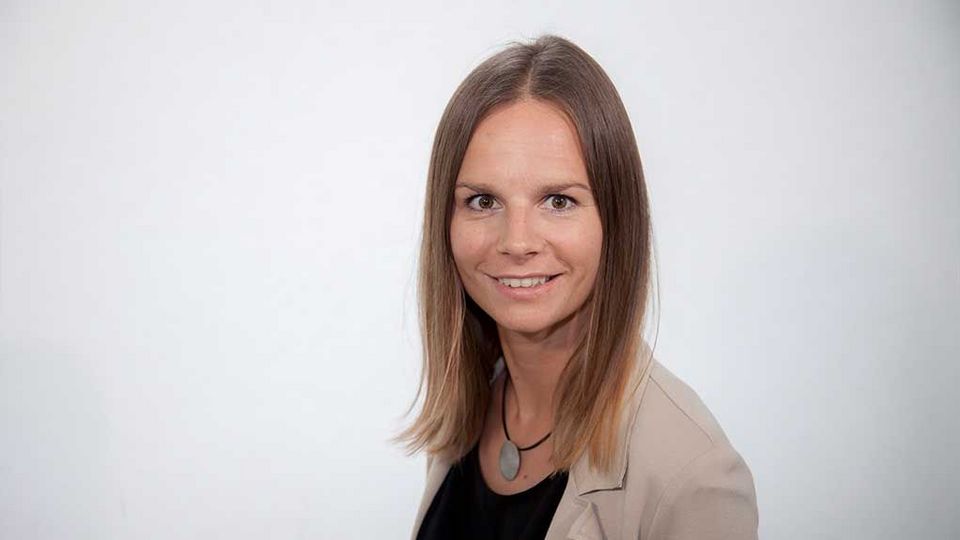
Stellvertretende Pflegedienstleitung im UKH Klagenfurt am Wörthersee, AUVA
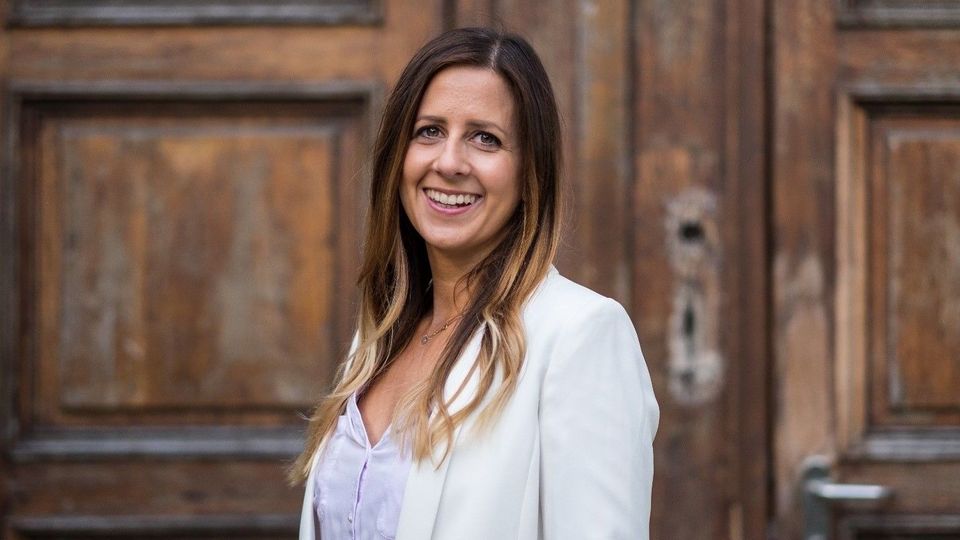
Durch lebenslanges Lernen den Wandel im Gesundheitswesen vorantreiben - Die Steirerin Nadja Fink hat sich erst nach ihrer Berufsausbildung zur…
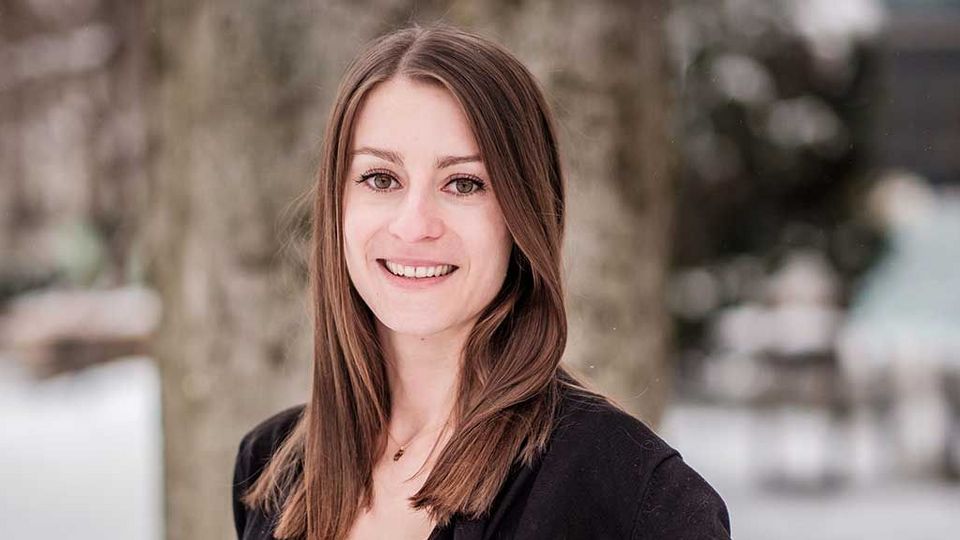
Durch ein strukturiertes Zeitmanagement brachte sie ihr Studium "Gesundheits- und Pflegemanagement" mit ihrer Arbeit im Energie Center…
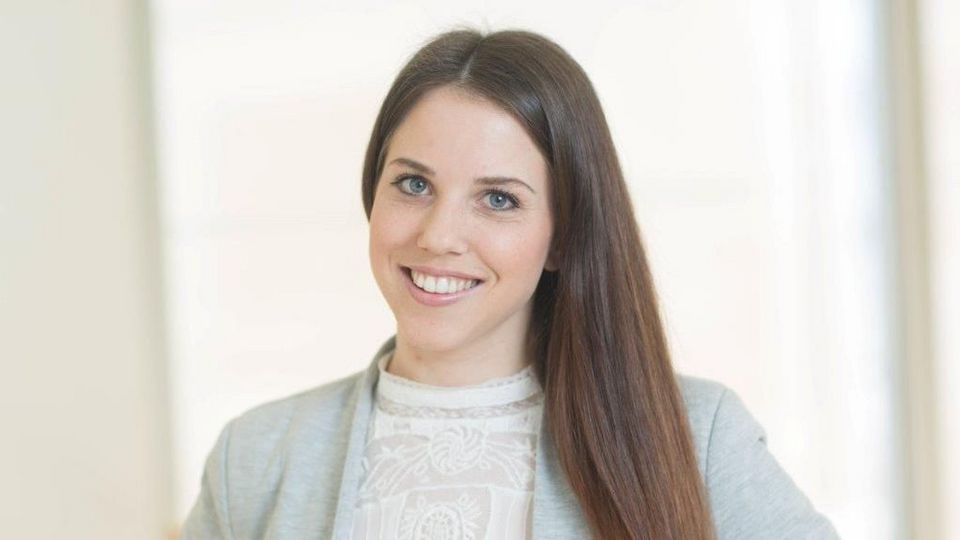
Lisa-Maria Kummer durchlief ihre komplette akademische Karriere an der Fachhochschule Kärnten. Die gebürtige Klagenfurterin traf die Entscheidung…
An den Studiengängen Gesundheits- und Pflegemanagement arbeiten nicht nur Lehrende und Forschende an Praxis- und Forschungsprojekten, auch unsere Studierenden haben die Möglichkeit, in diesem Bereich erste Erfahrungen zu sammeln. Der Studienplan bietet nämlich zahlreiche Möglichkeiten, um Projekte zu konzipieren, zu realisieren und auch zu evaluieren. Ab Wintersemester 2014 stellen wir die Projekte der Studierenden aus den Studiengängen Gesundheits- und Pflegemanagement an dieser Stelle laufend vor.
Literacy ist ein aktuell viel diskutiertes Konzept, mit dem beansprucht wird, basale Lebenskompetenzen in hochzivilisierten, globalisierten Wissensgesellschaften auf den Begriff zu bringen. Zur flexiblen, aktiven und produktiven Bewältigung gegenwärtiger Alltagsanforderungen – so eine verbreitete Überzeugung – bedarf es mittlerweile eines ganzen Arsenals entsprechender Kompetenzen. Um nur eine kleine Auswahl aufzuführen: Information Literacy, Media Literacy, Computer Literacy, Digital Literacy, Technology Literacy, Visual Literacy, Cultural Literacy, Dramatic Literacy, und vor allem auch Health Literacy.
Das Grundkonzept besticht auf den ersten Blick durch scheinbar leichte Verständlichkeit und eindeutige Begriffsbestimmung: Wer über Literacy im ursprünglichen Sinn verfügt, besitzt die Kompetenz, Geschriebenes lesen zu können, dadurch schriftliche Materialen zur Informationsgewinnung nutzen und an schriftgestützten gesellschaftlichen Vorgängen teilnehmen zu können. Auf den zweiten Blick weicht diese Einfachheit und Eindeutigkeit jedoch einer hohen Komplexität und einer nahezu unüberschaubaren Breite von Definition–en sowie Anwendungen.
Analog wird auch der Begriff Health Literacy in gesundheitsbezogenen Kontexten mehr oder weniger breit verwendet und diskutiert. Im deutschsprachigen Raum wird er durch Termini wie Gesundheitsalphabetisierung, Gesundheitsbildung, Gesundheitsmündigkeit oder Gesundheitskompetenz ersetzt. Vor dem Hintergrund der WHO-Definition, die Health Literacy als "the degree to which people are able to access, understand, appraise and communicate information to engage with the demands of various health contexts to promote and maintain good health across the life course" versteht, wächst die Anzahl von Ansätzen zur Definition, Messung und Umsetzung des Konzepts.
Dies alles verweist auf die Komplexität und die Vielschichtigkeit von Health Literacy, ebenso auf das Potential, aber auch die Risiken, die sich im Zusammenhang mit diesem schillernden Begriff ergeben. Dem haben wir mit der Tagung Raum gegeben: einen Raum, in dem die verschiedenen Bedeutungen, Möglichkeiten und Ziele von Health Literacy in unterschiedlichen Bereichen beleuchtet und dabei auch die spezifisch soziologischen Perspektiven hervorgehoben wurden. Dabei sind eigene Überlegungen, Strategien und Maßnahmen vorgestellt, diskutiert, rückgespiegelt und damit vertieft worden.
Eingeladen wurde zur Präsentation von theoretischen, empirischen und/oder praxisbezogenen Arbeiten, sei dies in Form eines Vortrags oder eines Posters. Mögliche Themenbereiche waren:
Health Literacy im Kontext von:
Health Literacy im inhaltlichen Bezug zu:
Health Literacy im Spannungsfeld von:
sowie weitere Stand- und Brennpunkte aktueller Health-Literacy-Debatten wie auch eines „transliteraten“ Mix aus obengenannten Bezugspunkten.
Wissenschaftliches Komitee
Vorsitz/Chair: Karl Krajic, Wien und Holger Penz, Feldkirchen
Österreich
Regina Klein, Feldkirchen
Johanna Muckenhuber, Graz
Christa Peinhaupt, Wien
Deutschland
Johann Behrens, Halle/Saale
Monika Jungbauer-Gans, Nürnberg
Schweiz
Maja Mylaeus-Renggli, Bern
Julie Page, Winterthur
Ursula Streckeisen, Bern
Bereits zum dritten Mal lud die Fachhochschule Kärnten ihre Partnerhochschulen aus dem Ausland zu einer International Staff Week ein. Das diesjährige Thema lautete: EARLY LIFES FAMILY CARE.
ZurZeit rückt die gesundheitliche Versorgung von Kindern in vielen europäischen Ländern in den Blickpunkt des öffentlichen Interesses. Häufig alarmiert durch medienwirksame Fälle von Kindesvernachlässigung, -mißhandlung bis –tod, entwickeln sich EU-weit verschiedene Programme, Initiativen und Maßnahmen, um gesundheitliche Chancengleichheit zu fördern und allen Kindern einen gesunden Start ins Leben zu ermöglichen.
Unter ganz unterschiedlichen Bezeichnungen, wie: Frühe Hilfen, Frühe Bildung, Frühförderung, Familienunterstützung und Elternbildung etc. etablieren sich interdisziplinäre Kooperationen, deren Aufgabenfelder weit über die Grenzen bisheriger Gesundheits- und Hilfesysteme hinausgehen. Darin involviert ist ein ebenso weites berufliches Spektrum: von Sozialarbeiter/innen, Familienschwestern und -hebammen über Erzieher/-innen, Logopädg/innen, Physiotherapeut/-innen, Psycholog/-innen bis zu Kinderärzt/-innen und Gynäkolog/innen.
Mit 24 Expert/innen aus acht Ländern und vierzehn internationalen Hochschulen (von Niederlande, Finnland, Lettland, Deutschland, Schweiz, Slovenien bis Österreich) wurden daher vor allem neue transdiziplinäre Formen interprofessionellen Wissens- und Kompetenzvermittlung diskutiert.
Eine der zentralen Herausforderung in diesem Bereich steht besonders für Hochschulen an. Der anstehende Professionalisierungsprozess in diesem neuen Feld sozialer und gesundheitlicher Arbeit sollte grade auf der Ausbildungsebene zukunftsorientiert und nachhaltig begleitet werden, so die Initiatorin und Koordinatorin Regina Klein (Professorin für Gesundheitssoziologie im Studienbereich Gesundheit und Soziales).
Ergebnis der arbeitsintensiven Tagung war die Konsolidierung einer Netzwerkgruppe, die über eine Moodle-Platform weiter im Austausch steht und gemeinsam Projekte auf internationaler Ebene entwickelt.
Für weitere Informationen: r.klein[at]fh-kaernten[dot]at
Das Programm zum Download: International Week Programm CUAS 2015
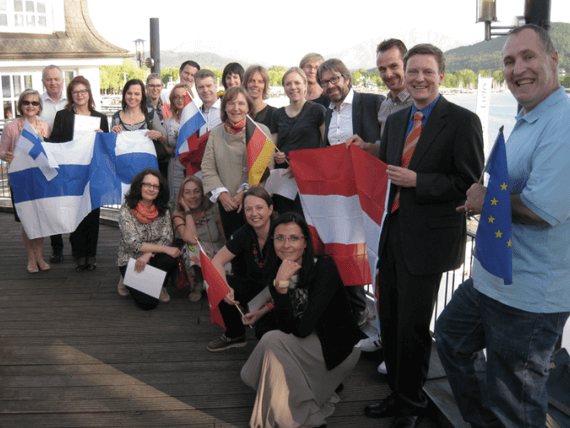
Die jährlichen Praktikumstage bieten eine ideale Kombination aus Information und Networking. Studierende haben die Möglichkeit, sich über verschiedene Praktikumsorganisationen zu informieren und wertvolle Einblicke in das zukünftige Arbeitsleben zu gewinnen. Am Online-Aktionstag können Studierende direkt mit Vertreter:innen der Organisationen in virtuellen Räumen ins Gespräch kommen, Fragen stellen und erste Kontakte für ihre berufliche Zukunft knüpfen. Nutze diese Gelegenheit, um dein Netzwerk zu erweitern und den perfekten Praktikumsplatz zu finden!
Informiere dich am Blog der Praktikumstage: Hier geht’s zum Blog.
Spielelemente können in der hochschulischen Lehre eingesetzt werden, um studentische Partizipation, Studienmotivation und vertiefendes Lernen zu fördern (Fischer et al., 2017). PlayDecide bietet einen Rahmen zur Entwicklung interaktiver Serious Games, die Studierende zu Diskussionen anregen können (Ward et al., 2017), und wurde für das Spiel „Gesundheitsförderung – lohnt sich das?“ genutzt.
Im Rahmen der Lehrveranstaltung „Settings der Gesundheitsförderung und Prävention“ wurde an den Studiengängen Gesundheits- und Pflegemanagement der Fachhochschule Kärnten gemeinsam mit Studierenden ein PlayDecide-Diskussionsspiel zur Bedeutsamkeit von Gesundheitsförderung entwickelt. Dieses soll auf spielerische Art und Weise Diskussion, kritische Reflexion und Meinungsbildung zur Gesundheitsförderung im Allgemeinen und in speziellen Settings anregen.
Basierend auf wissenschaftlicher Literatur und auf Gastvorträgen aus der Praxis wurden die nötigen Spielelemente konzipiert: Geschichten-, Informations-, Themen- und Aufgabenkarten, ein Platzset und vier politische Positionen zur Gesundheitsförderung. Eine erste Evaluation wurde im Sommersemester 2018 vorgenommen.
Das Diskussionsspiel zur Gesundheitsförderung folgt einem innovativen didaktischen Ansatz. Es kann an anderen Hochschulen eingesetzt werden bzw. bei Akteur*innen im Gesundheitssystem, um zur Diskussion zur Gesundheitsförderung einzuladen, politische Stellungen transparent zu machen und Entscheidungsprozesse zu begleiten.
Das Diskussionsspiel zum Download (Erstversion).
Gesundheitsförderung – lohnt sich das? (NEUAUFLAGE)
Fischer, H. et al. (2017). Die Gamifizierung der Hochschullehre – Potenziale und Herausforderungen. In S. Strahinger & C. Leyh (Hrsg.), Gamification und Serious Games. Grundlagen, Vorgehen und Anwendungen (S. 113-125). Wiesbaden: Springer.
Ward, M. et al. (2017). Imbuing medical professionalism in relation to safety: a study protocol for a mixed-methods intervention focused on trialling an embedded learning approach that centres on the use of a custom designed board game. BMJ Open, 7(7):e014122. doi: 10.1136/bmjopen-2016-014122.
Ein großes Dankeschön an unsere Unterstützer*innenund Kooperationspartner*innen:
„Der Fachtag macht nicht nur auf das Thema Demenz aufmerksam, sondern ist für uns eine Herzensangelegenheit.“
Eva Mir und Doris Gebhard, Initiatorinnen der Veranstaltung
„Ich bin sehr glücklich darüber, dass an der FH Kärnten das Thema Demenz sehr präsent ist und dass hier eine Vorreiterrolle wahrgenommen wird.“
Monika Lechner, MSc., akademische Expertin für Demenzstudien, Referentin für Demenzpflege
„Ich freue mich, dass ich als Jurymitglied des 1. Österreichischen Demenzpreises sponsored by maierhofer diese wichtigen Projekte mitbeurteilen darf und dadurch zur Verbesserung der Lebensqualität der Betroffenen beitragen kann.“
Hannelore Pacher, Selbsthilfegruppe Alzheimerkranke und deren Angehörige, Klagenfurt
Fachhochschule Kärnten und Land Kärnten, Abteilung 5 Gesundheit – Unterabteilung Gesundheitsförderung, arbeiten gemeinsam an einem Pilotprojekt zum Thema Ernährung und Tagesbetreuung.
Heute, 7. März 2024, ist Tag der gesunden Ernährung. Bereits in der frühen Kindheit werden die Weichen für gesundheitsbezogenes Verhalten gestellt, Tagesmütter und -väter leisten dazu wertvolle Beiträge. Das Thema Ernährung stellt hier eine wesentliche Säule dar. „Die Lebenswelt Tagesbetreuung ist im Vergleich zu Kindergärten in Forschung und Praxis der Gesundheitsförderung und Prävention vernachlässigt, da fehlen uns Daten, spezifische Standards, Maßnahmen und auch Handlungsempfehlungen noch weitgehend,“ erklärt Fachhochschulprofessorin Eva Mir. Gefördert vom Fonds Gesundes Österreich startet daher ein kooperatives Pilotprojekt vom Land Kärnten und der Fachhochschule Kärnten. „Gemeinsam wollen wir wissenschaftlich fundiert und unter breiter Einbindung der Zielgruppe für das Thema Ernährung sensibilisieren und Maßnahmen für diese sehr spezielle Lebenswelt entwickeln,“ freut sich Sabine Steiner als Projektverantwortliche von Seiten der Abteilung 5 Gesundheit, Unterabteilung Gesundheitsförderung.
Eine spannende, 22-monatige Reise hat begonnen :)

„Ich habe mich für das Studium Gesundheits- und Pflegemanagement entschieden, da dieses Studium praxisbezogen ist, sehr vielfältige Lehrveranstaltungen beinhaltet, jeder in der fixen Studiendauer das Studium abschließen kann und das Berufsfeld nach dem Studium sehr breitgefächert ist.“
Sabine Ortner
Absolventin
„Im Sinne meines Auslandszivildienstes habe ich unter anderem für sechs Monate ein Volontariat in einem Hospiz als Pfleger gearbeitet und seit diesem Zeitpunkt wusste ich, dass ich mich auf diesem Gebiet weiterbilden möchte. Durch den Studiengang „Gesundheits- und Pflegemanagement“ an der Fachhochschule Kärnten habe ich für mich persönlich den „perfekten“ Ausbildungsweg gefunden. Durch den breit gefächerten Stundenplan mit praxisorientierten Lehrveranstaltungen bekommt man eine hoch qualitative Ausbildung und wertvolle Einblicke in verschiedenste Bereiche. Diese „Mischung“ ermöglicht mir eine große Bandbreite an Einstiegsmöglichkeiten in die heutige sowie zukünftige Berufswelt."
Johannes Seidl
Absolvent GPM
„Der Studiengang Gesundheits- und Pflegemanagement war der Werkzeugkoffer, der mir von der FH Kärnten für eine erfolgreiche Zukunft mitgegeben wurde. Basis-Kenntnisse über Gesundheitswesen, Wirtschaft und Forschung lassen genug Spielraum für Spezialisierung und Weiterbildung. Als besonders positiv bewertete ich die individuelle Förderung der Studierenden und die Kooperation mit den Lehrenden. Das Berufspraktikum war essentiell für den Aufbau von Netzwerken und ermöglichte die direkte Anwendung erlernter Kompetenzen. Wohin mich mein beruflicher Weg auch führen wird, sei es in nationale oder internationale Gefilde, ich fühle mich gewappnet.“
Clara Wenger-Haargassner
Absolventin
„Nach der Matura war es mein Wunsch, eine qualifizierte Ausbildung zu machen, um zukünftig im stark wachsenden Gesundheitssektor zu arbeiten. Ich bin froh, dass ich mich für das Studium Gesundheits- und Pflegemanagement entschieden habe. Diese praxisbezogene Ausbildung bot mir eine große Bandbreite an Lehrveranstaltungen von BWL über Medizin bis hin zur Psychologie und noch vieles mehr, was mir die Möglichkeit offen ließ, später in Krankenhäusern, Versicherungen und Pflegeheimen, in verschiedensten Führungspositionen tätig zu sein.“
Michaela Auer-Welsbach
Absolventin
FH-Prof. Mag. Dr.
Klaus WettlMag.a
Christina Anticevic-HarrantDipl.-Psych.
Andrea StitzelFH-Prof.in Mag.a
Sabine SpanzFH-Prof.in Mag.a Dr.in
Olivia KadaFH-Prof.in Priv.-Doz. Mag.a Dr.in
Eva MirFH-Prof. Dipl.-Math. Dr.
Florian Buchner, M.P.H.FH-Prof. Dr.
Ralf ReicheFH-Prof. Mag. Dr.
Peter GranigFH-Prof.in Dr. phil.
Melanie Breznik, BSc MADr. phil.
Sebastian Rauter-NestlerThe young district town of Feldkirchen in Carinthia, gateway to the Carinthian Nockberge mountains and Lake Ossiacher See, lies in the centre of Carinthia, in Austria's southernmost province. In addition to unspoilt nature and friendly people, Feldkirchen with its modern shops, stylish boutiques, cosy restaurants and coffee houses is an ideal location for students. Both the mountains and lakes in the area and the proximity to Slovenia and Italy offer a wide range of sports and leisure activities for young and old. Swimming, surfing, sailing or mountain hiking or skiing, ice skating or snowboarding make Feldkirchen an attractive and popular campus!
Take the car, it's so tempting.
Coming from Klagenfurt: You drive on the bypass of Feldkirchen to the 3rd traffic light (Baumax) and turn left there(Ossiacher See Süduferstraße). Follow the road for approx. 1km and turn left towards the centre, into Ossiacher Straße (before the railway crossing). After approx. 200m you will see a free parking lot on the left side, drive straight on for approx. 200m and you will reach the main square. At the lower end on the left you will find the building of the Fachhochschule. There are a few short parking spaces in front of the building.
Coming from Villach: Turn right at the first traffic light into the Ossiacher See Süduferstraße. Follow the road for about 1km and then turn left towards the centre, into Ossiacher Straße (before the railway overpass). After approx. 200m you will see a free parking lot on the left side. Continue straight ahead for approx. 200m to the main square. At the lower end on the left is the building of the University of Applied Sciences. There are a few short parking spaces in front of the building.
Take bus or train, it is safe and comfortable.
Coming from the station: When you leave the station building, turn left towards the centre. Turn left into Obere Tiebelgasse and then right into Bürgergasse, which will take you to the main square. The building on your left is the Fachhochschule, choose the entrance at the main square. Walking time: approx. 10 min.
Go on foot - discover the city!
Coming from the bus station: Walk along 10. Oktober-Strasse towards the city centre until you reach Schillerplatz. There turn right into Kirchgasse until the street forks. Turn left into Ossiacher Straße, which will lead you to the main square after a few steps. The University of Applied Sciences is located at the lower end of the main square, so go down to the left and you will find yourself right in front of the entrance. Walking time: approx. 5 min.Go on foot - discover the city!
Campus Feldkirchen
Hauptplatz 12
A-9560 Feldkirchen i. K.
+43 5 90 500 4101
gesundheit-und-soziales[at]fh-kaernten[dot]at
In order to be admitted into a bachelor degree program at the Carinthia University of Applied Sciences at least one of the following criteria must be fulfilled:
Moreover, there are degree program specific additional prerequisites as well as more comprehensive information regarding admissions on the individual web pages of the corresponding degree program. The German University of Applied Sciences (Fachhochschule) entrance qualification certificate is only valid as an admission prerequisite for an Austrian UAS/FH bachelor degree program when combined with an applicable vocational certificate.
Persons in their last year of school may apply for a study place in a bachelor degree program before taking their secondary school-leaving exams by submitting their most current secondary school grade/marks report. The secondary school-leaving certificate must be submitted during the registration process at the beginning of the semester.
In order to be admitted into a master degree program at the Carinthia University of Applied Sciences at least one of the following criteria must be fulfilled:
Persons in their last semester of their bachelor degree programs may apply for a study place in a master degree program by submitting their most current transcript of records. The completion of the bachelor degree program certificates must be submitted during the registration process at the beginning of the semester.
####ContentToReplace####
Before enrolment in a degree program at the Carinthia University of Applied Sciences, a learning agreement is concluded between the prospective student and the Carinthia University of Applied Sciences.
This contract defines the rights and obligations of the student and the Carinthia University of Applied Sciences.
The rights and obligations of the student at a glance:
The learning agreement is sent electronically to applicants who have been accepted onto a degree program. In addition to the electronic consent to the learning agreement, the timely payment of the tuition fee and the Austrian Students´ Union fee is a prerequisite for admission to the degree program.
Significant legislative basis for a UAS degree program in Austria can be found here:
FHG - Federal Act on University of Applied Sciences Degree Programs (in German only)
HS-QSG - Act on Quality Assurance in Higher Education
Regarding the accreditation of previously gained academic knowledge through courses and/or exams taken at other institutions of higher education, the respective degree program administration/director will use the principle of ‘course per course relevant accreditation.
The equivalency of the previously taken courses in terms of content and scope to the offered courses in the degree program will be determined by the degree program administrator/director. If an equivalency is determined to exist, then those courses passed with positive marks/grades will be recognized and accredited. Additional examination of academic knowledge in these cases is not foreseen.
Specialized knowledge and relevant experiences acquired through professional and on-the-job experience may also be considered for accreditation for relevant courses. In cases of accrediting professional experience for course credits, additional examinations may be carried out if applicable.
Applications for accreditation are to be submitted directly to the Program Director no later than the start date of the relevant study course(s).
The student must decide where s/he will spend the semester abroad (i.e., a partner university) and will need to coordinate with the responsible Departmental International Coordinator concerning the necessary requirements.
Before the student spends the semester abroad, s/he is required to submit a completed Learning Agreement. This document contains all the courses the student will take abroad and will be recognized at CUAS once s/he finishes the courses successfully. The courses should correspond as much as possible to the courses offered in the curriculum of the student’s CUAS study program in the relevant semester in content and semester hours. It is highly recommended to students to take 30 ECTS credits abroad.
The Learning Agreement is signed and approved by the individual student, the host institution and the program director of the study degree program or a designated faculty member at CUAS.
The Learning Agreement is a declaration of the courses which are to be taken abroad and is not valid as an official recognition document by Austrian law. Therefore, the document is to be linked to the official document “Antrag auf Anerkennung / Application for Accreditation” for academic studies abroad.
During the first four weeks of the study abroad semester the student is allowed to change the Learning Agreement. For example, previously selected courses do not take place or overlap. The host institution and CUAS must agree upon the courses to be changed. If this is approved, the changes must be listed separately on the Learning Agreement (section “Changes to the original Learning Agreement). Afterwards the document is signed and approved by the individual students, the host institution and the program director of the study degree program or a designated faculty member at CUAS.
After the semester abroad the courses taken abroad will be recognized at CUAS. Therefore, the original Transcript of Records from the host institution and the legally valid document “Antrag auf Anerkennung / Application of Accreditation” (which is linked to the Learning Agreement) are obligatory. The student lists on the document the successfully finished courses abroad. After the recognition process is positively completed, the CUAS Transcript of Records will contain those courses.
In cases where the semester abroad is not completed successfully, the Departmental Coordinator and program director of the relevant study degree program will determine on an individual basis if and what courses will be accredited and what a student can do to make up those missing credits which were not accredited.
Detailed information about a semester abroad
For further questions please contact the International Relations Office.
Degree programs at University of Applied Sciences fundamentally only offer a limited number of study places.
In the framework of the application process each applicant will carry out an interview which will influence the allocation of the study places. Additionally, specific degree study programs may require written application tests as well as content-specific/technical aptitude tests. Detailed information regarding the degree program specific application requirements are provided on the degree programs’ web pages.
Repetitive applications for a study place at the same study degree program (e.g., in the following year) is generally allowed; however, the entire application process will start anew and candidates must resubmit all documents and carry out all steps again.
Carinthia University of Applied Sciences reserves the right to levy a surety of EUR 363.36 from the applicant in case of doubt on the authenticity or correctness as regards content of the documents proving the fulfillment of the admission requirements or in case that the documents are not sufficient for a decision on the fulfillment of the admission requirements in accordance with § 4 para. 5a FHG. This surety will be reimbursed to the applicant if the review has proved the authenticity and the correctness of the documents and the fulfillment of the admission requirements.
####ContentToReplace####
Detailed information about application deadlines can be found at the websites of the respective degree programs!
Carinthia University of Applied Sciences accepts both exchange students from partner institutions and so-called ‘Free Mover’ students. The decision to accept Free Movers is made on an individual basis by the relevant Degree Program Director. In the first case an official nomination (via e-mail) from the partner institution is necessary. After the nomination the student will be provided information regarding the application procedure.
Free Movers may apply directly.
Detailed information and deadlines
In order to register as a student at CUAS, each student must fulfill the following:
The enrollment periods for each degree program will be announced in advance to all applicants.
The examination regulations are an integral part of the education contract between the student and Carinthia University of Applied Sciences. It is also available to students and lecturers on the intranet.
Exams are graded according to the FHG [Federal Act on University of Applied Sciences Degree Programs]) § 17 (1), in the Austrian Grading System:
Austrian grading scheme | Definition |
1 | EXCELLENT: |
2 | GOOD: |
3 | SATISFACTORY: |
4 | SUFFICIENT: |
Successfully completed | Positive Leistung, wo eine genaue Differenzierung nicht tunlich ist. |
5 | UNSATISFACTORY: |
Not completed | Negative performance, where a strict differentiation is not adequate |
Recognised | Transfer credits for courses with equivalent learning outcomes |
The final bachelor's and master's examinations before a committee are graded according to FHG (Federal Act on University of Applied Sciences Degree Programs) § 17 (2) in the following grading scale:
In applying this grading system, it has to be noted that the grades “Pass with merit” and “Pass with distinction” are reserved exclusively for an examination performance clearly exceeding the level of performance required to pass these final exams.
Please note: This part of the Website is only available in German.
Die Nostrifizierung ist die Anerkennung eines ausländischen Studienabschlusses (Ausbildung im tertiären Bereich/an Hochschule/Universität) als gleichwertig mit dem Abschluss des inländischen Bachelor- bzw. Masterstudiums an der FH Kärnten. Die Nostrifizierung an der FH Kärnten kann nur erfolgen, wenn ein mit dem ausländischen Studienabschluss gleichwertiger Studiengang an der FH Kärnten eingerichtet ist und sofern die Nostrifizierung zwingend für die Berufsausübung in Österreich notwendig ist (z.B. reglementierter Beruf). Ein nostrifizierter akademischer Grad entfaltet dieselben Rechtswirkungen wie ein im Inland erworbener akademischer Grad.
Innerhalb der Europäischen Union (EU) bzw. des Europäischen Wirtschaftsraumes (EWR) ist eine Nostrifizierung nicht zwingend erforderlich und daher auch nicht möglich. Die Anerkennungsentscheidung von europäischen Ausbildungen in einem reglementierten Beruf (z.B. im Bereich der medizinisch-technischen Dienste, Hebammen und Gesundheits- und Krankenpflege) erfolgt in Österreich durch die zuständige Behörde (das für Gesundheit zuständige Ministerium bzw. Landesregierungen).
Auszug aus: nostrifizierung.at
Nostrifizierungsansuchen können nur für Studienabschlüsse eingebracht werden, welche mit dem Studienangebot der FachhochschuleKärnten übereinstimmen.
Die Nostrifizierung ist ein Verwaltungsverfahren an einer Universität bzw. Fachhochschule, die an bestimmte Voraussetzungen gebunden ist.
Der/Die Antragsteller/in muss nachweisen, dass die Nostrifizierung für seine/ihre angestrebte Tätigkeit in Österreich eine zwingende (siehe: „Was ist vorzulegen?“) Voraussetzung ist. In allen anderen Fällen obliegt die Bewertung des ausländischen Studiums ohnehin dem/der Arbeit- oder Dienstgeber/in.
Die Nostrifizierung kann an jeder Universität bzw. Fachhochschule, an der ein vergleichbares österreichisches Studium eingerichtet ist, beantragt werden. In vielen Fällen kommen daher mehrere Universitäten bzw. Fachhochschulen in Betracht. An welcher davon der/die Antragsteller/in in einem solchen Fall das Verfahren beantragt, bleibt seiner/ihrer Wahl überlassen. Der gleiche Nostrifizierungsantrag kann jedoch nur an einer Hochschule eingebracht werden.
Siehe: Notwendige Anlagen zum Antrag auf Nostrifizierung
Die Nostrifizierungstaxe beträgt derzeit EUR 150,00 und ist im Voraus zu entrichten. Dazu kommen Gebühren und Verwaltungsabgaben. Mehr Informationen unter Anlagen zur Nostrifizierung.
Kriterien der Überprüfung sind Inhalte, Umfang und Anforderungen desjenigen österreichischen Studiums, mit dessen Abschluss die Gleichwertigkeit beantragt wird. Wenn einzelne Voraussetzungen nicht zutreffen, können diese als außerordentliche/r Studierende/r absolviert werden. Sämtliche Bedingungen werden mit Bescheid vorgeschrieben. Wenn der/die Antragsteller/in alle zusätzlichen Bedingungen erfüllt hat oder wenn keine Bedingungen vorgeschrieben wurden, stellt die zuständige Stelle die Nostrifizierung fest.
..., weil die Unterschiede zum österreichischen Studium zu groß sind, kann um Zulassung zum österreichischen Studium angesucht und nach erfolgter Zulassung die Anerkennung von Prüfungen aus dem ausländischen Studium, soweit sie den österreichischen gleichwertig sind, erfolgen. Danach kann das österreichische Studium fortgesetzt und abgeschlossen werden.
Auszug aus: Wie-Verläuft-eine-Nostrifizierung
The European Credit Transfer and Accumulation System (ECTS) is a student-oriented system to accumulate and transfer different study credits.
The ECTS is one of the main characteristics of the Bologna Process and is used within the European tertiary system to allow universities and other institutes of higher education to recognize and accredit students’ previous post-secondary coursework. Moreover, this allows students to accumulate credits from different institutions as well ensure that their tertiary degrees are recognized internationally. Thus, the ECTS-system regulates not only student mobility within Europe but also the admission to institutes for further studies.
The system is based upon the transparency of defined learning outcomes and learning processes. The acquisition of experience and knowledge is made transparent through the defined learning outcomes in the course description, the corresponding curriculum module and the degree program’s entire curriculum; this significantly contributes to quality assurance.
ETCS credits are calculated based upon a student’s workload, which in normal cases is necessary to pass a course successfully.
The learning outcomes describe what students should know, understand and be able to do after the successful completion of a learning process. The work load defines the amount of time typically necessary for all learning activities (e.g., lectures, seminars, projects, lab exercises, self-study, exams) in order to achieve the expected learning outcomes.
Within the European tertiary system, a semester is assessed to have 30 ECTS credits and an academic year 60 ECTS credits. The workload for an academic year ranges between 1.500 and 1.800 hours. In Austria, one ECTS credit is equivalent to a workload of 25 real hours.
The Learning Agreement (an agreement to accredit courses completed in a semester abroad) encompasses a listing of all the courses/modules/learning units that a student is to attend and complete at the partner university during the semester abroad. The courses’ ID-numbers and the ECTS credits to be transferred are listed in this document as well. When a ECTS credit transfer is to take place, then the learning agreement must be signed and approved by all three parties involved before the semester abroad: the student, the host institution and the sending institution. It is possible to make amendments to the learning agreement four weeks after the begin of the semester abroad.
The document Confirmation of Stay (Aufenthaltsbestätigung) confirms the actual stay of students at the host institution and is normally issued by the International Relations Office. The document may be issued by the host institute’s International Relations Office at the earliest two weeks before students abroad depart back to their home countries. This document is mandatory for Erasmus+ students.
The Transcript of Records (Datenabschrift) provides an overview of all study courses (completed courses/modules, grades/marks and the number of achieved ETCS credits). The ToR provides a proof of courses successfully completed and thus is very useful for student mobility (before the semester abroad, the ToR can be provided to the host institution and after the semester abroad, it provides the foundation for the recognition/accreditation of courses completed abroad at the sending institution).
The Diploma Supplement (Diplomzusatz) contains a standardized description of a completed degree program. The diploma supplement aims to improve the overall international transparency of degrees as well as to serve as a document for the recognition of academic and professional qualifications.
Infos unter www.fh-kaernten.at
For payments within the additional period, the tuition fee increases by 10%. Registration is only possible after receipt of payment at the account of CUAS!
*Please note the individual start of the courses! The exact dates can be found on the website of the respective degree programme, or contact the responsible administration for more information
**Please refer to the websites of the respective degree programs to find out which application periods are open.
*** Deviations and changes concerning the lecture-free periods are possible! Please inform yourself
about your study programme with your administration.